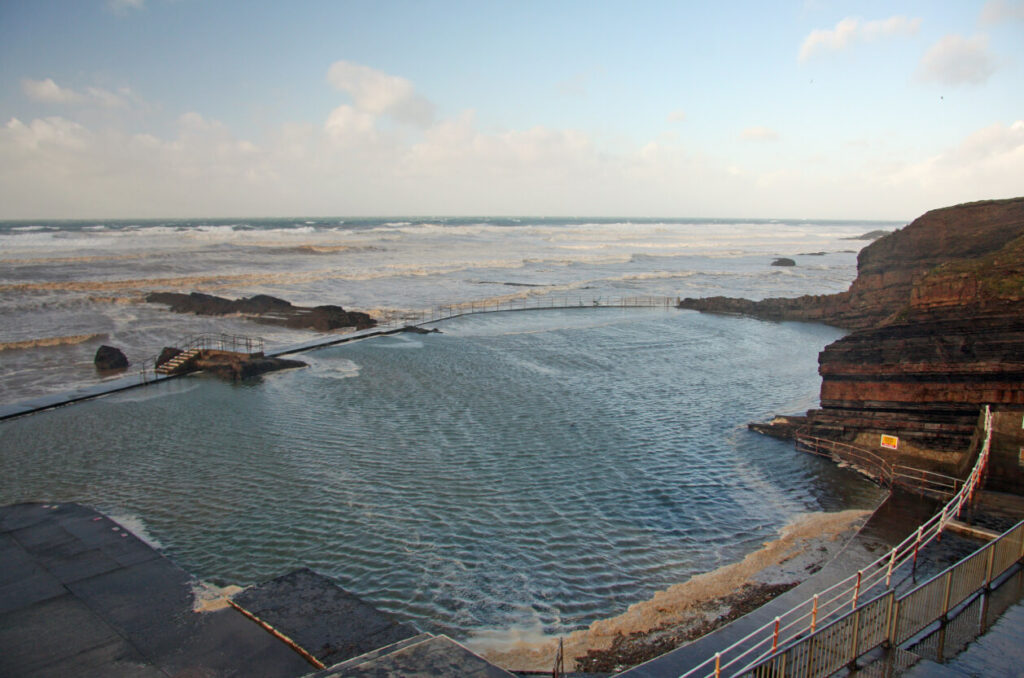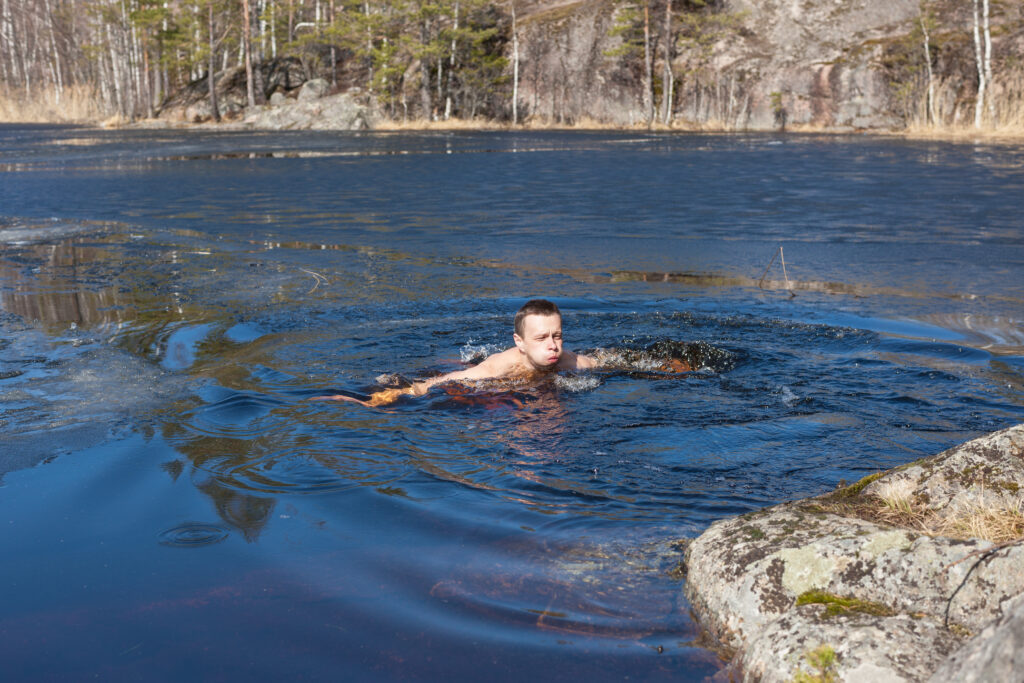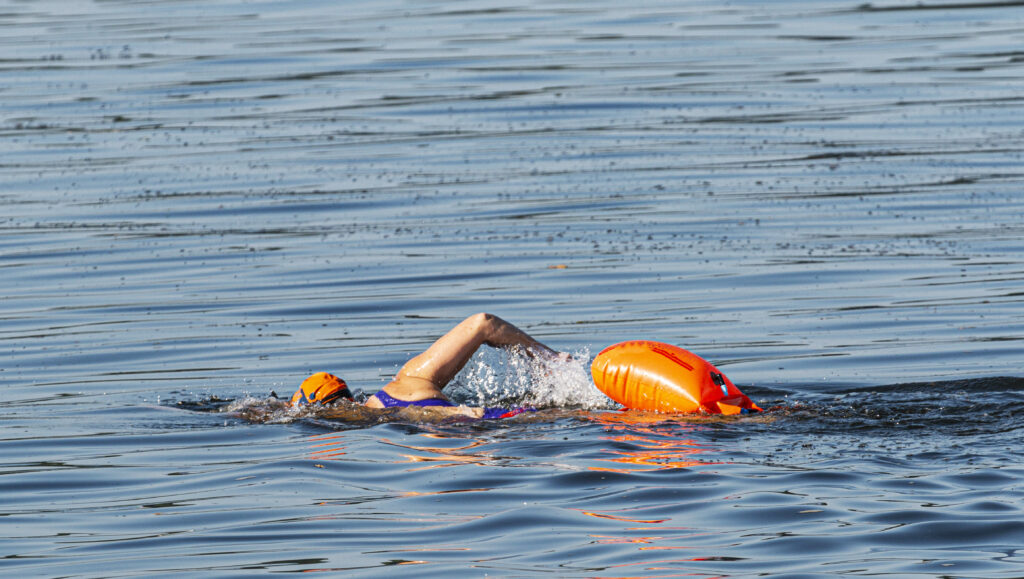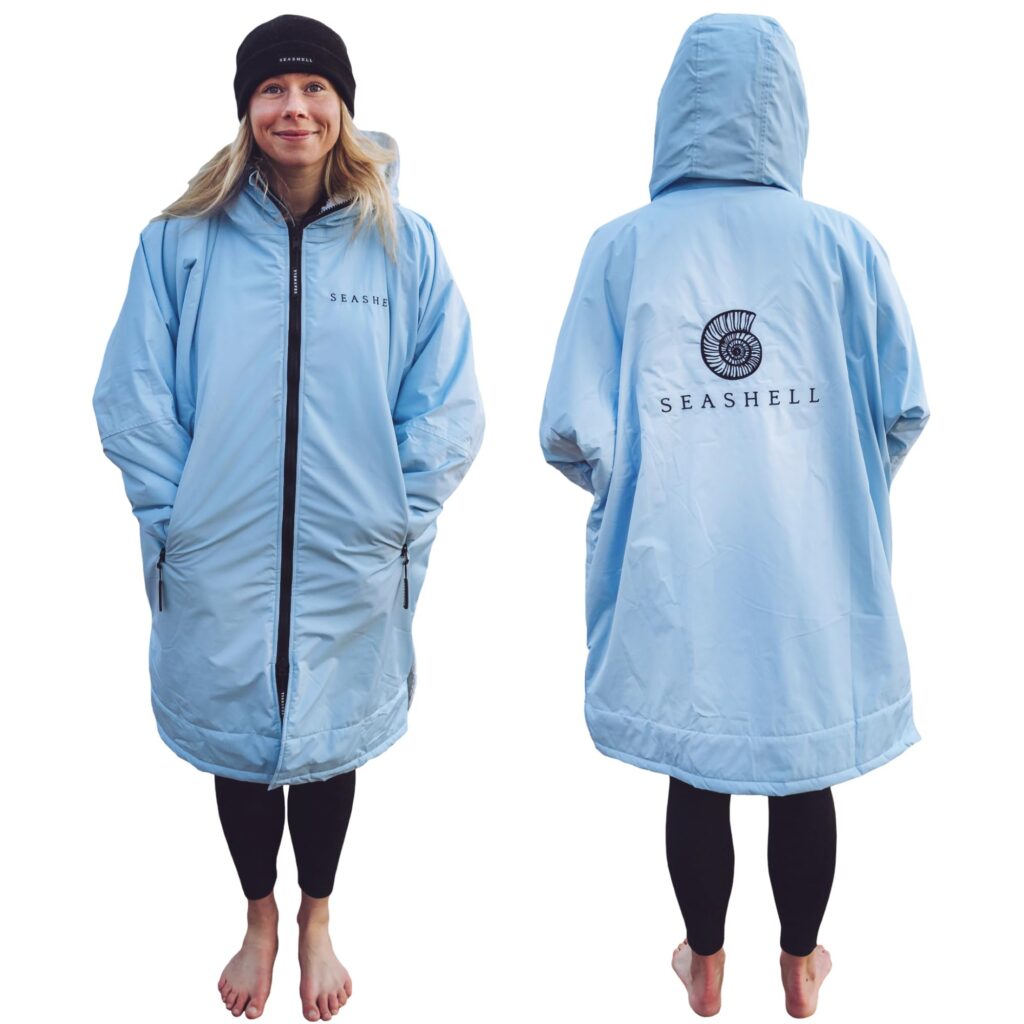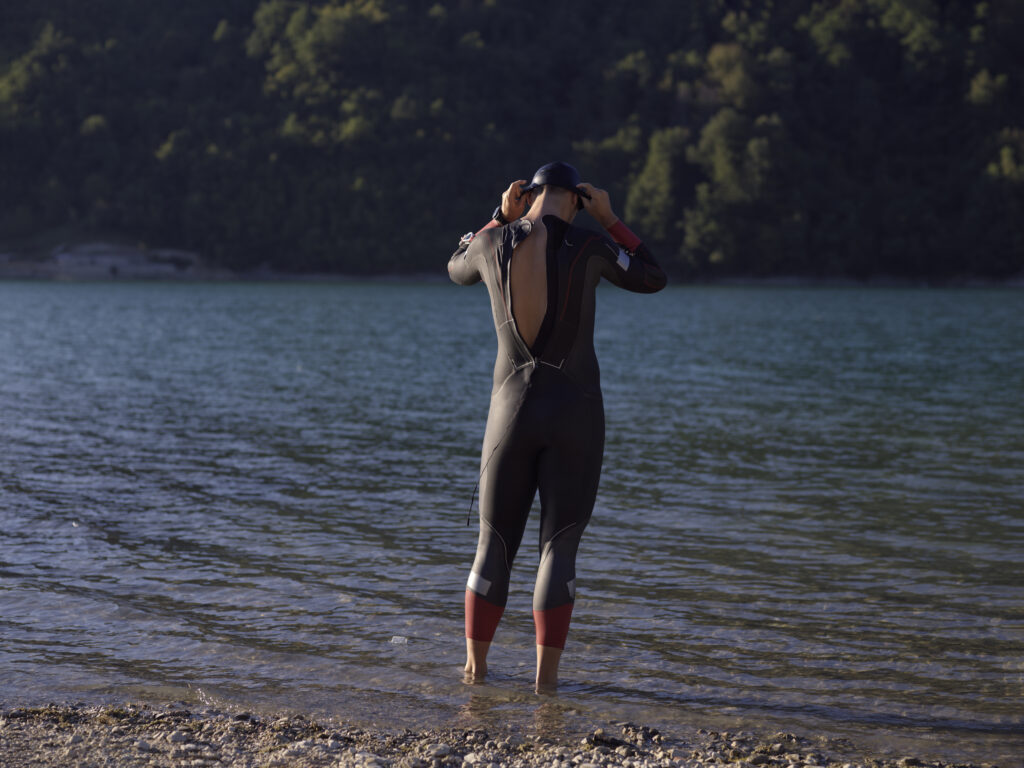Cold water open swimming has been gaining popularity as a way to improve both physical and mental health. The practice involves swimming in natural bodies of water, such as rivers, lakes, and oceans, in temperatures below 15°C. While it may seem daunting to some, the benefits of cold water swimming are becoming increasingly recognised by health professionals.
The science behind cold water swimming is fascinating. When our bodies are exposed to cold water, they go into a state of shock, causing our blood vessels to constrict and our heart rate to increase. This triggers a release of endorphins, which can lead to a sense of euphoria and improved mood. In addition, cold water swimming has been shown to boost our immune system, increase metabolism, and improve circulation.
Key Takeaways
- Cold water swimming has physical and mental health benefits.
- The practice triggers a release of endorphins, which can lead to a sense of euphoria and improved mood.
- Cold water swimming can boost our immune system, increase metabolism, and improve circulation.
The Science Behind Cold Water Swimming
Cold water swimming has been gaining popularity in recent years, with more people taking the plunge into icy lakes, rivers, and seas. But what makes this extreme sport so appealing? The answer lies in the science behind it.
When we immerse ourselves in cold water, our body goes into survival mode. Our heart rate increases, blood vessels constrict, and we start to shiver. This is our body’s way of trying to keep warm and protect our vital organs.
But there are also many benefits to cold water swimming. Studies have shown that it can boost our immune system, improve circulation, and reduce inflammation. It has even been linked to reducing symptoms of depression and anxiety.
One of the main benefits of cold water swimming is its effect on our mental health. When we swim in cold water, our body releases endorphins, which are natural painkillers that can make us feel good. This can lead to a sense of euphoria and a feeling of being invigorated.
Cold water swimming can also help us to build resilience and improve our mental toughness. When we overcome the initial shock of the cold water, we feel a sense of accomplishment and pride. This can help us to develop a growth mindset and become more resilient in our daily lives.
In conclusion, the science behind cold water swimming is clear. It can have many benefits for our mind and body, from boosting our immune system to improving our mental health. So why not take the plunge and try it for yourself?
Physical Health Benefits of Cold Water Swimming
Cold water swimming has numerous physical health benefits that can help improve our overall wellbeing. Here are some of the most notable benefits:
Boosts Immune System
Taking a dip in cold water can help boost our immune system by increasing the number of white blood cells in our body. These cells help fight off infections and diseases, making us less susceptible to illnesses.
Increases Metabolism
Swimming in cold water can increase our metabolism as our body works harder to stay warm. This can help burn more calories, making it a great exercise for those looking to lose weight.
Reduces Inflammation
Cold water swimming can help reduce inflammation in our body, which can help alleviate pain and swelling in our joints. This can be particularly beneficial for those suffering from conditions such as arthritis.
Improves Circulation
Cold water swimming can also improve our circulation by constricting our blood vessels. This can help increase the flow of blood and oxygen to our muscles and organs, which can improve their overall function.
Relieves Stress
Swimming in cold water can help relieve stress and anxiety by triggering the release of endorphins in our body. These hormones can help improve our mood and reduce feelings of pain and stress.
Overall, cold water swimming can offer numerous physical health benefits that can help improve our overall wellbeing. However, it is important to take proper precautions and ensure that we are swimming in a safe and controlled environment to avoid any potential risks.
Mental Health Benefits of Cold Water Swimming
Cold water swimming has been found to have numerous mental health benefits, including stress reduction, improved mood, and enhanced focus.
Stress Reduction
Many studies have shown that swimming in cold water can help reduce stress levels. When we immerse ourselves in cold water, our body releases endorphins, which are natural painkillers that can help us feel calm and relaxed. Additionally, swimming in cold water can help reduce inflammation in the body, which is a common cause of stress.
Improved Mood
Swimming in cold water has been found to be an effective way to improve mood. The cold water can help increase the levels of serotonin and dopamine in the brain, which are neurotransmitters that are associated with happiness and pleasure. Additionally, the physical activity of swimming can help increase blood flow to the brain, which can help improve cognitive function and boost mood.
Enhanced Focus
Swimming in cold water can also help enhance focus and concentration. The cold water can help increase blood flow to the brain, which can help improve cognitive function and boost focus. Additionally, the physical activity of swimming can help increase oxygen flow to the brain, which can help improve mental clarity and alertness.
Overall, cold water swimming can have numerous mental health benefits, including stress reduction, improved mood, and enhanced focus. If you are interested in trying cold water swimming, be sure to start slowly and gradually build up your tolerance to the cold water. Additionally, be sure to consult with a doctor before starting any new exercise routine.
Safety Precautions for Cold Water Swimming
When it comes to cold water swimming, safety is paramount. While there are many benefits to this activity, it’s important to take precautions to ensure that you stay safe and healthy.
Before You Go
Before you head out for a cold water swim, it’s important to do some preparation. Here are some things to keep in mind:
- Choose a safe location: Look for a spot that is known to be safe for swimming, with no dangerous currents or hazards. If you’re unsure about a location, ask a local expert or check with a lifeguard.
- Check the weather: Make sure you’re aware of the weather conditions for the day, including the temperature, wind, and waves. Avoid swimming in stormy weather or when there are high winds.
- Wear the right gear: Make sure you have the appropriate gear for cold water swimming, including a wetsuit, swim cap, and goggles. These will help keep you warm and protect you from the elements.
Getting In the Water
When it’s time to get in the water, there are a few things to keep in mind:
- Start slowly: Don’t jump right into the water, as this can be a shock to your system. Instead, ease yourself in slowly, starting with your feet and gradually working your way in.
- Stay close to shore: Avoid swimming too far from shore, especially if you’re new to cold water swimming. This will make it easier to get back to safety if you start to feel uncomfortable.
- Listen to your body: Pay attention to how your body is feeling. If you start to feel dizzy, lightheaded, or experience any other symptoms, get out of the water immediately and warm up.
Emergencies
Even if you take all the necessary precautions, emergencies can still happen. Here are some things to keep in mind:
- Don’t swim alone: Always swim with a buddy or in a group. This will ensure that there is someone to help you if you get into trouble.
- Know what to do in an emergency: If someone in your group is in trouble, know how to respond. This may include calling for help, performing CPR, or using a flotation device to rescue them.
By following these safety precautions, you can enjoy the many benefits of cold water swimming while staying safe and healthy.
How to Start Cold Water Swimming
If you’re new to cold water swimming, it’s important to start slowly and build up your tolerance gradually. Here are some tips to help you get started:
1. Find a safe location
Choose a location that is safe for swimming, with clear water and no strong currents. Look for a designated swimming area or a spot that is popular with other swimmers.
2. Check the temperature
Before you get in the water, check the temperature. Cold water can be dangerous, so make sure it’s safe to swim. The ideal temperature for cold water swimming is around 10-15°C.
3. Wear appropriate gear
Wear a wetsuit or other appropriate gear to keep you warm in the water. You may also want to wear a swim cap and ear plugs to protect your head and ears.
4. Start slowly
Start by dipping your toes in the water and gradually work your way up to full immersion. Don’t stay in the water for too long at first. Build up your tolerance gradually over time.
5. Swim with a buddy
Always swim with a buddy, especially if you’re new to cold water swimming. It’s important to have someone with you in case you get into trouble.
6. Listen to your body
Pay attention to how your body feels in the water. If you start to feel uncomfortable or experience any pain, get out of the water immediately.
7. Warm up afterwards
After your swim, take a warm shower or wrap yourself in a warm towel to help your body warm up. Drink plenty of warm fluids to help raise your core body temperature.
Remember, cold water swimming can be dangerous, so always take precautions and listen to your body. With time and practice, you can build up your tolerance and enjoy the many benefits of this invigorating activity.
Conclusion
In summary, cold water open swimming provides numerous benefits for both the mind and body. We have explored the various advantages of this unique form of exercise, including increased endorphins, improved circulation, and reduced inflammation. Additionally, cold water open swimming has been shown to boost the immune system, increase mental clarity, and promote overall wellbeing.
While there are risks associated with cold water open swimming, such as hypothermia and cold water shock, these can be mitigated through proper preparation and safety measures. It is important to consult with a medical professional before engaging in this activity, especially if you have any pre-existing health conditions.
Overall, we highly recommend cold water open swimming to anyone looking to improve their physical and mental health. Whether you are a seasoned swimmer or a beginner, there are many benefits to be gained from this invigorating and challenging activity. So why not take the plunge and experience the thrill of cold water open swimming for yourself?
Frequently Asked Questions
What are the long-term benefits of open water swimming in cold water?
Cold water swimming has been shown to have numerous long-term benefits for the body, including improved circulation, increased metabolism, and strengthened immune system. It can also help reduce inflammation, improve cardiovascular health, and boost energy levels.
Can cold water swimming improve mental health?
Yes, cold water swimming has been linked to improved mental health. It can help reduce symptoms of depression and anxiety, increase feelings of happiness and well-being, and improve overall mood. Cold water swimming has also been shown to increase the production of endorphins, which are natural mood-boosters.
Does cold water swimming aid weight loss?
Cold water swimming can aid in weight loss by increasing metabolism and burning calories. When swimming in cold water, the body has to work harder to maintain its core temperature, which can lead to increased calorie burn. However, it is important to remember that weight loss is not the only benefit of cold water swimming and should not be the sole reason for engaging in this activity.
What are the potential benefits of cold water swimming for menopause?
Cold water swimming may help alleviate some of the symptoms of menopause, such as hot flashes and night sweats. The cold water can help cool the body and reduce the severity and frequency of these symptoms. Additionally, cold water swimming can help improve sleep quality, which is often disrupted during menopause.
Can cold water swimming help alleviate arthritis symptoms?
Cold water swimming may help alleviate some symptoms of arthritis, such as joint pain and stiffness. The cold water can help reduce inflammation and swelling in the joints, leading to improved mobility and reduced pain. However, it is important to consult with a healthcare professional before engaging in cold water swimming if you have arthritis or any other medical condition.
Does cold water swimming increase dopamine levels?
Cold water swimming has been shown to increase dopamine levels in the brain, which can lead to improved mood and feelings of pleasure. Dopamine is a neurotransmitter that is associated with reward and motivation, and increased levels of dopamine can help reduce symptoms of depression and anxiety.


